As the name implies, the main difference between juice and water fasting is that juice fasting involves drinking juiced fruits and vegetables, while water fasting involves only water. Another key difference is that water fasting promotes weight loss, while juice fasting promotes detoxification.
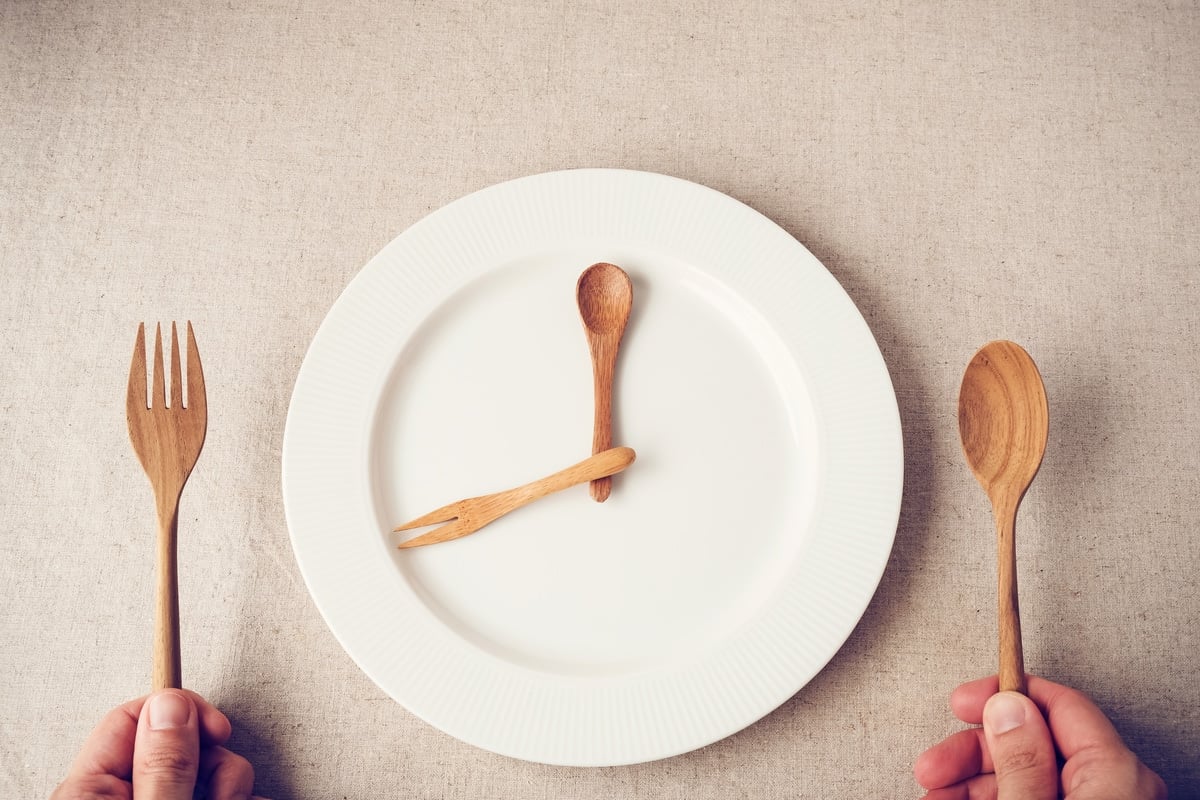
Even though you only drink liquids with both methods, juice fasting still gives you more energy and nutrients. In contrast, water fasting allows the digestive system to rest completely, which leads to autophagy, or the body's way of cleansing itself of damaged cells.
Although both methods of fasting bring health benefits, the best type of fasting is the one that suits you best. Read on to learn everything about juice and water fasting, their similarities and differences, and see which one works for you.
Table of Contents
What is Fasting?

A fast is a set period during which you refrain from eating food. Each fast usually lasts 12 to 24 hours, but some types can last for days or even weeks.
In recent years, fasting has become more common among people who want to lose weight. One of the most common types is intermittent fasting, a periodic type of fasting. But while it is true that some people fast as a way to lose weight, that is not all it is about. Others do it for health purposes, and it is usually a part of surgery prep.
Besides health purposes and weight loss, others may also fast for religious purposes. Some religions encourage periods of fasting. For instance, Muslims fast from sunrise to sunset during the 30 days of Ramadan.
Benefits of Fasting
Although fasting can be difficult and uncomfortable, many mental and physical benefits can be gained from it.
Aids weight loss
Today, many people have started fasting as a way to lose weight. Theoretically, not eating for a while should reduce the number of calories you take in, which could lead to weight loss over time. Aside from the decreased calorie intake, a study has found that short-term fasting may boost metabolism by increasing the amount of norepinephrine in the body, which could enhance weight loss.
In 2015, a review showed that alternate-day fasting could reduce body weight by up to 7% over a span of 3 to 12 weeks. Meanwhile, another review found fasting to be more effective than calorie restriction at increasing weight loss and fat loss while preserving muscle tissue.
Improves blood sugar control
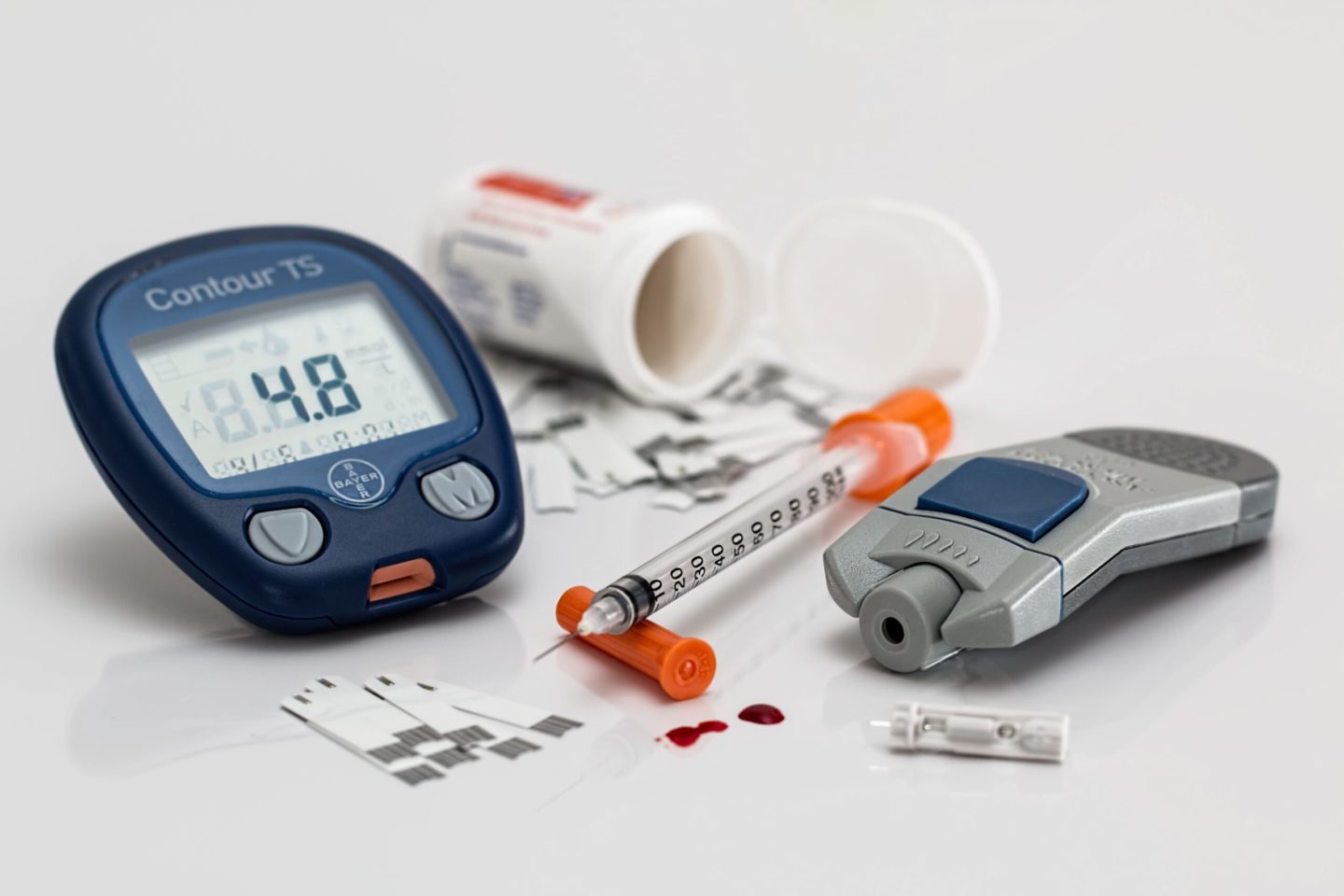
Over the years, several studies have found that fasting may improve blood sugar control. This could be especially useful for people at risk of developing diabetes.
In fact, a small study involving 10 participants with type 2 diabetes found that short-term intermittent fasting decreased blood sugar levels. Furthermore, a 2014 review showed that alternate-day fasting and intermittent fasting were effective at both limiting calorie intake and reducing insulin resistance.
By decreasing insulin resistance, the body’s sensitivity to insulin increases. This way, the body can transport glucose to the cells more effectively. Thus, fasting could help keep your blood sugar steady. However, always make sure to consult your doctor before trying any kind of fasting.
Reduces inflammation
Acute inflammation is a normal process that helps the body fight off infections. However, prolonged chronic inflammation can harm your body. Some studies have found that fasting can promote better health by decreasing the body’s levels of inflammation.
In 2014, a study in 50 healthy Muslims who practiced Ramadan fasting showed significantly decreased levels of inflammatory markers. During Ramadan, Muslims fast for 12 hours a day for 30 days.
Meanwhile, a recent study found that short-term fasting reduces chronic inflammation and improves chronic inflammatory diseases.
Improves heart health

Since 2000, heart disease has been the leading cause of death worldwide. And in 2020, it was responsible for 16% of the world’s total deaths. Changing your lifestyle is just one of the many ways to reduce your risk of heart disease.
Some studies have found that including fasting in your routine may lead to better heart health. In fact, one small study found that eight weeks of alternate-day fasting lowered the levels of “bad” cholesterol by 25% and triglycerides by 32% in obese adults.
Meanwhile, a bigger study in 110 obese adults revealed that a 3-week fast under medical supervision significantly lowered blood pressure, blood triglycerides, total cholesterol, and “bad” cholesterol. Lastly, a study of 4,629 patients linked fasting to a lower risk of coronary artery disease.
Induces cellular repair processes
A study has found that when people fast, their cells initiate a process called autophagy, the body’s waste removal process for recycling essential nutrients. More specifically, during autophagy, the cells remove the unnecessary and dysfunctional components in the body. This then allows the body to regenerate newer, healthier cells.
One study found that increased autophagy may protect the body against cancer, while another study found the same effect against Alzheimer’s disease. Thus, these studies show that increased autophagy may protect us from various diseases.
Risks of Fasting: Is It Safe?
While fasting promises many benefits, it is never a good idea to jump right into a fast. No matter why you may be considering fasting, always consult your doctor first.
Hunger, dehydration, and stress
When you first start fasting, you will feel hungry, especially if you are used to eating three meals plus snacks a day. Although this is not dangerous, it might make you uncomfortable. Aside from that, fasting can also cause heartburn, a burning pain in your chest. This condition can occur when you do not eat enough food.
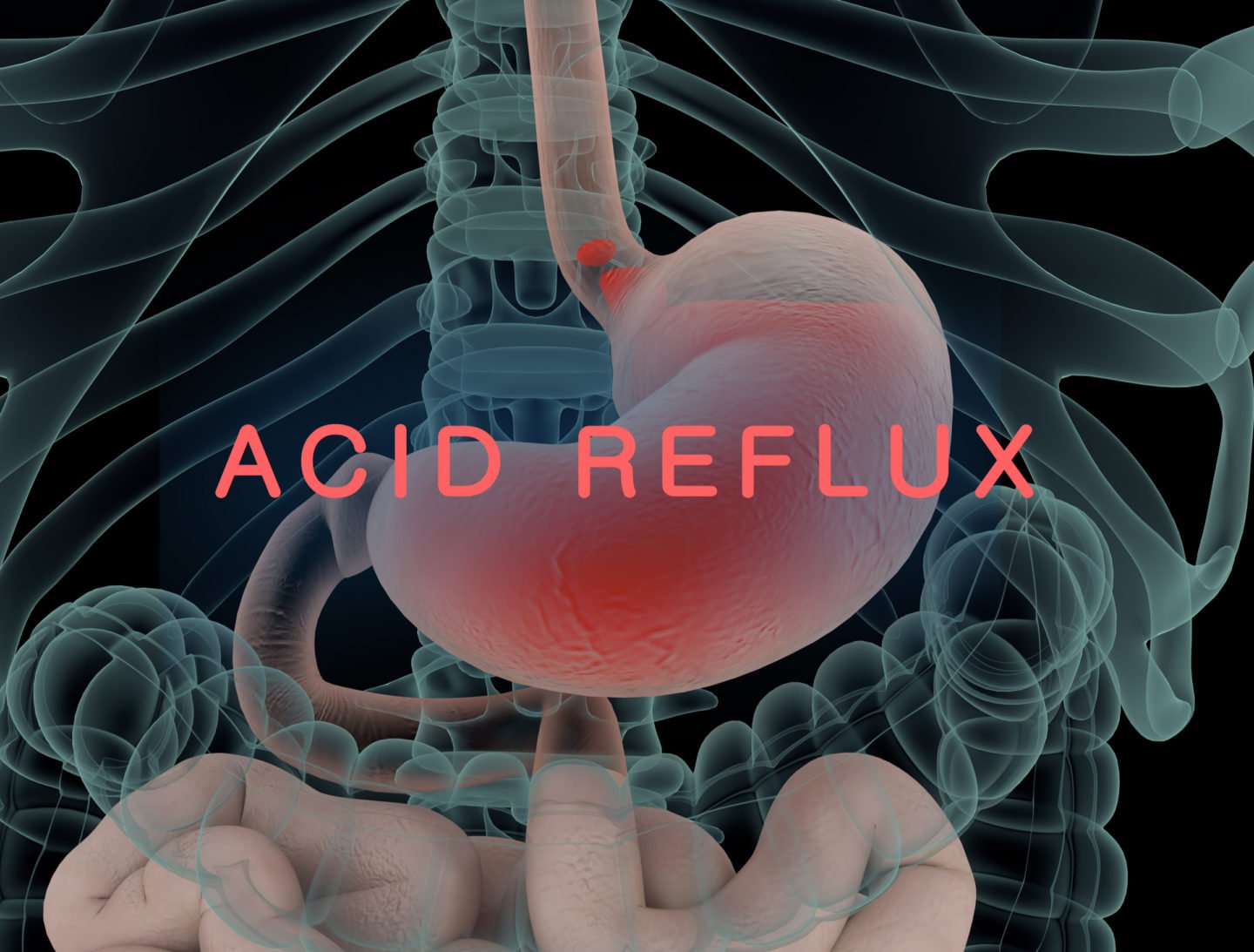
As a result, fasting can increase your stress levels and disrupt your sleep—but it does not stop there. Stress and lack of sleep can also make you feel more tired and irritable. Furthermore, dehydration is common in people who fast, mostly because they do not get any fluid from food. For that reason, doctors recommend drinking plenty of water before dry fasting.
Dehydration, hunger, or lack of sleep brought about by fasting can also lead to headaches or migraines.
Blood sugar spikes
If you have diabetes, you especially need to consult your doctor before fasting because you will need special planning. The biggest danger of fasting to you is that your blood sugar level could get dangerously low (hypoglycemia) or dangerously high (hyperglycemia).
If you take medication such as insulin as maintenance for your diabetes, you are at a higher risk of hypoglycemia. If you continue to take your medication while you fast, your blood sugar levels may drop too low. Hypoglycemia is no joke; it can cause you to feel shaky, pass out, or even fall into a coma.
On the other hand, when you break your fast by eating, your blood sugar levels are at risk of spiking too high. Experts call this hyperglycemia, and it only happens if you consume too many carbohydrates.
Fasting is not for everyone
Fasting is generally safe, but going for long periods without eating can be risky for some people. Be sure to consult your doctor before trying any kind of fasting.

- People with diabetes. As I have said, diabetics are at risk of hypoglycemia and hyperglycemia when fasting. If you have diabetes and need to fast, work together with your doctor to make sure that you can fast safely.
- People using medications that they must take with food. Some medicines need to be taken with food to reduce side effects such as stomach irritation, indigestion, stomach inflammation, or ulcers. If you are currently taking such medications, ask your doctor if it is safe for you to fast.
- Children and adolescents. Doctors advise children and adolescents to avoid fasting because they are in a period of rapid growth. They will need to consume lots of nutrients every day, which they will not be able to do while fasting.
- Pregnant or breastfeeding women. Fasting during and after pregnancy may lead to nutritional deficiencies for you and your baby. Since fasting can alter hormone levels, other health issues may also arise. As such, experts do not recommend fasting while pregnant or breastfeeding.
- People who are underweight or have a history of eating disorders. Doctors advise against fasting for people who are underweight as they need plenty of calories daily. Likewise, those with a past of eating disorders are discouraged from fasting as it can trigger old, unhealthy habits.
Remember, always consult your doctor before making any changes to your diet and exercise habits.
Tips for Fasting Safely
Once you have decided to fast and have consulted your doctor, you need to know how to fast safely. By following these tips, you can avoid some of the side effects associated with fasting.
Stay Hydrated

Dehydration can make it much harder for you to keep fasting—it causes fatigue, excessive thirst, dry mouth, and headaches. And yet, it is one of the most common side effects seen in people who fast.
For that reason, it is vital to drink enough fluid while fasting. Most experts generally recommend drinking eight 8-oz glasses of fluid every day. However, the actual amount you need to drink depends on your body.
While fasting, most people aim to drink 8.5 to 13 cups of water throughout the day. Of course, though this is a good practice, your body should tell you if you need to drink more fluids.
Keep Yourself Occupied
Avoid making it any harder than it has to be. It can be difficult to ignore your hunger when bored, so the key is to keep yourself distracted. Keep yourself busy by doing activities that will get your mind off of your hunger. Of course, these activities should not use up too much energy, such as reading, strolling, or meditating.
Avoid Breaking Fasts With Feasts
Once the end of the fast is in sight, it can be easy to slip up. You might be tempted to eat a huge meal after hours or days of fasting, but do not give in. Instead of making you feel satisfied, doing so could result in the opposite—it could leave you feeling bloated and tired.
With this in mind, health experts say that the best way to break a fast is by easing back into your regular eating routine.
Water Fasting: The Good And The Bad
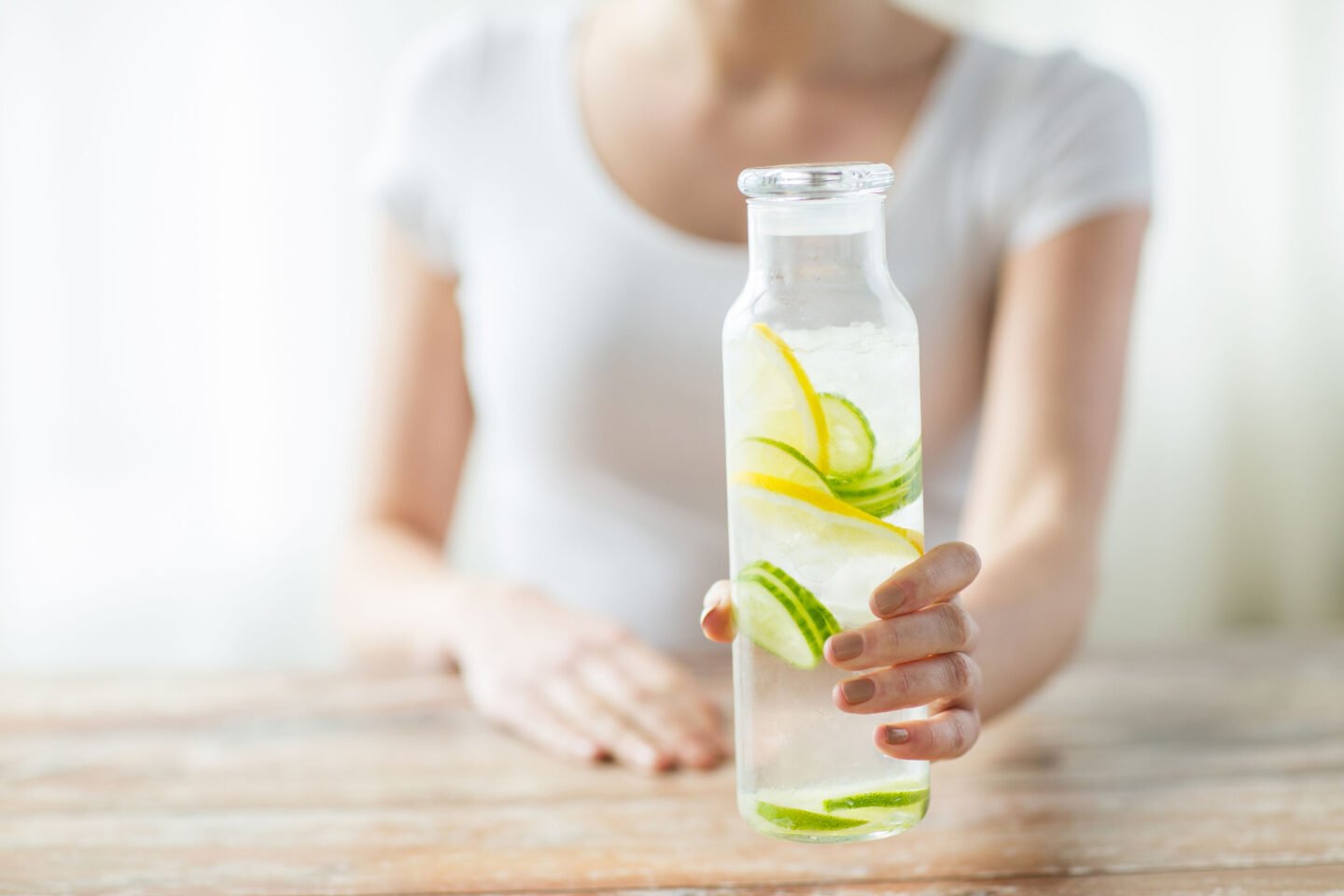
Water fasting is a type of fast wherein you refrain from eating and consume only water. In short, it is a type of fast that usually does not cost anything. However, some health enthusiasts drink coconut water during a fast instead of regular water. If you decide to do so, note that water fasting can become expensive.
Additionally, doctors advise against water fasting for longer than three days without medical supervision. This can make such a diet difficult to maintain. Thus, the results are often not long-lasting.
Some reasons why people try water fasting are:
- Preparing for a surgery
- Weight loss
- Detox
- Immunity system reboot
- Religious reasons
Benefits of Water Fasting
Several studies have associated water fasting with various health benefits. Here are some of them:
- May promote autophagy. Like I said above, autophagy is good for our body as it prevents damaged parts of cells from building up and allows for new, healthier cells to grow. In fact, a study has shown that this may help prevent cancer cells from growing.
- May help lower blood pressure. Several studies have shown that medically supervised water fasts lasting 10-14 days may be effective in lowering blood pressure. Of course, it is important to note that these were medically supervised. Doctors generally advise against water fasting for more than 3 days.
- May improve insulin management. Research has shown that water fasting can make the body more sensitive to insulin. Higher sensitivity to insulin means the body is more efficient at reducing its blood sugar levels.
- May aid in weight loss. Likewise, research has found that water fasting can lead to a higher sensitivity to leptin, which is a hormone that helps the body feel full. Being leptin sensitive could lower your risk of obesity by helping the body process hunger signals more efficiently.
- May lower the risk of chronic diseases. One study found that a water fast of 24 hours had lowered 30 healthy adults’ blood levels of cholesterol and triglycerides significantly. These two are risk factors for heart disease.
Cons of Water Fasting
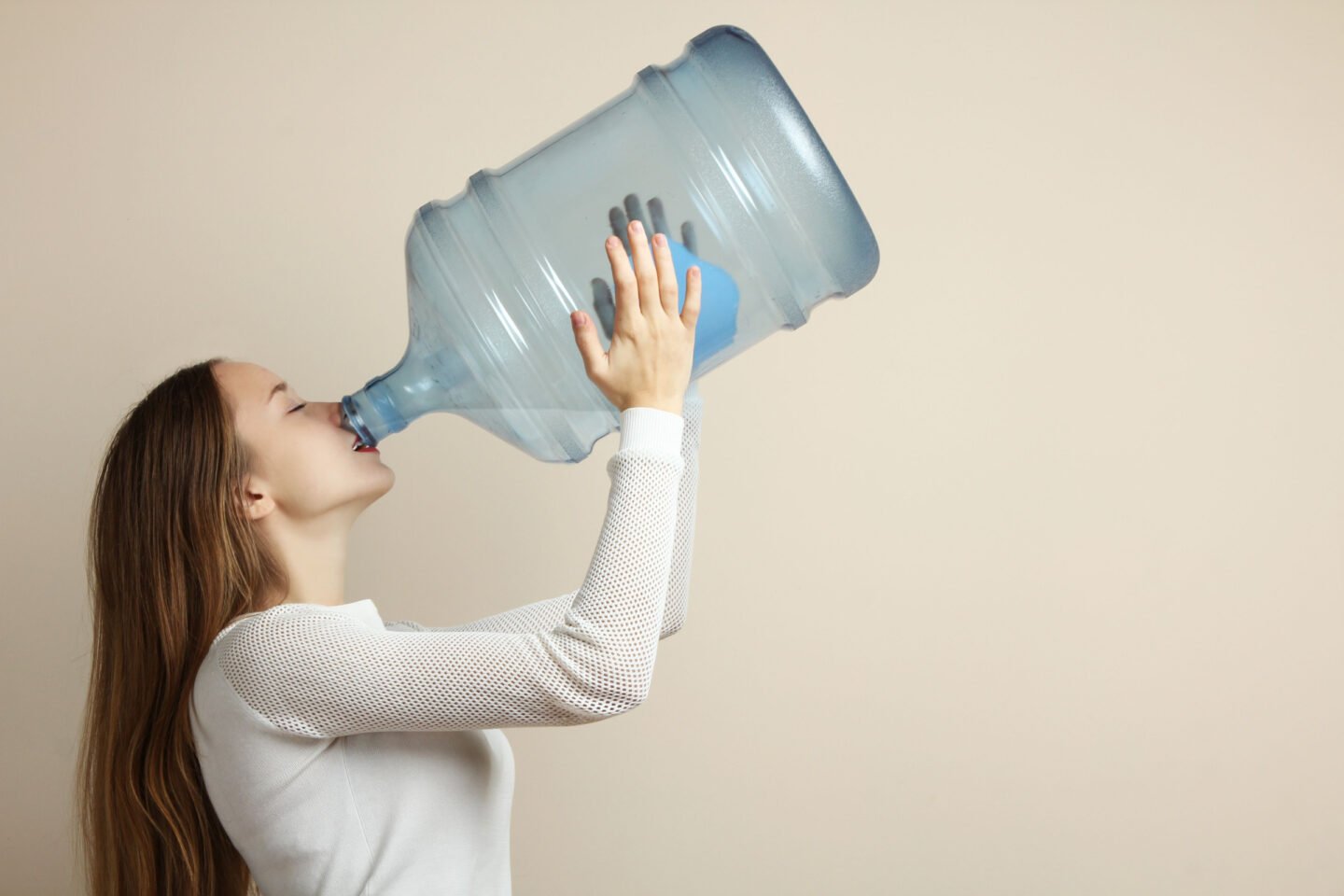
Although water fasting has many health benefits, it does come with some risks, including the following:
- You may lose muscle mass. Water fasting makes it impossible to intake any calories, which is why you will lose significant weight quickly. A study has shown that it is possible to lose 2 pounds per day of water fasting. Unfortunately, most of it may come from losing water weight, carbs, or muscle mass.
- Dehydration. Although it might be ironic, you can get dehydrated when you water fast because roughly 20 to 30 percent of your daily water intake comes from food. It can be easy to forget to drink water when you don't eat, so keep track of how much you drink when you water fast.
- Orthostatic hypotension. This condition is a drop in blood pressure that occurs when you suddenly stand up. You may feel dizzy, lightheaded, or even faint. And, unfortunately, this condition is common among people who water fast.
Who Can Water Fast?
Just like fasting, is generally not safe for everyone, so is water fasting. It is always important to consult your doctor before trying any type of fasting, more so if you belong to one of the following:
- Have or had an eating disorder
- Underweight
- Pregnant or breastfeeding
- Have heart problems
- Diabetic
- Have uncontrolled migraines
- Will undergo a blood transfusion
- Taking medication
Juice Fasting: The Good And The Bad
Juice fasting is a type of liquid diet that involves consuming only juices from fruits, vegetables, and herbs for days. A juice fast is also known as a juice cleanse or detox. As you juice fast, you should drink at least 32 ounces of fruit and vegetable juice, along with lots of water. And, similar to water fasting, most juice fasts last one to three days.
Additionally, juicing and blending have been used interchangeably, but it is important to note that juicing and blending are different.
Benefits of Juice Fasting
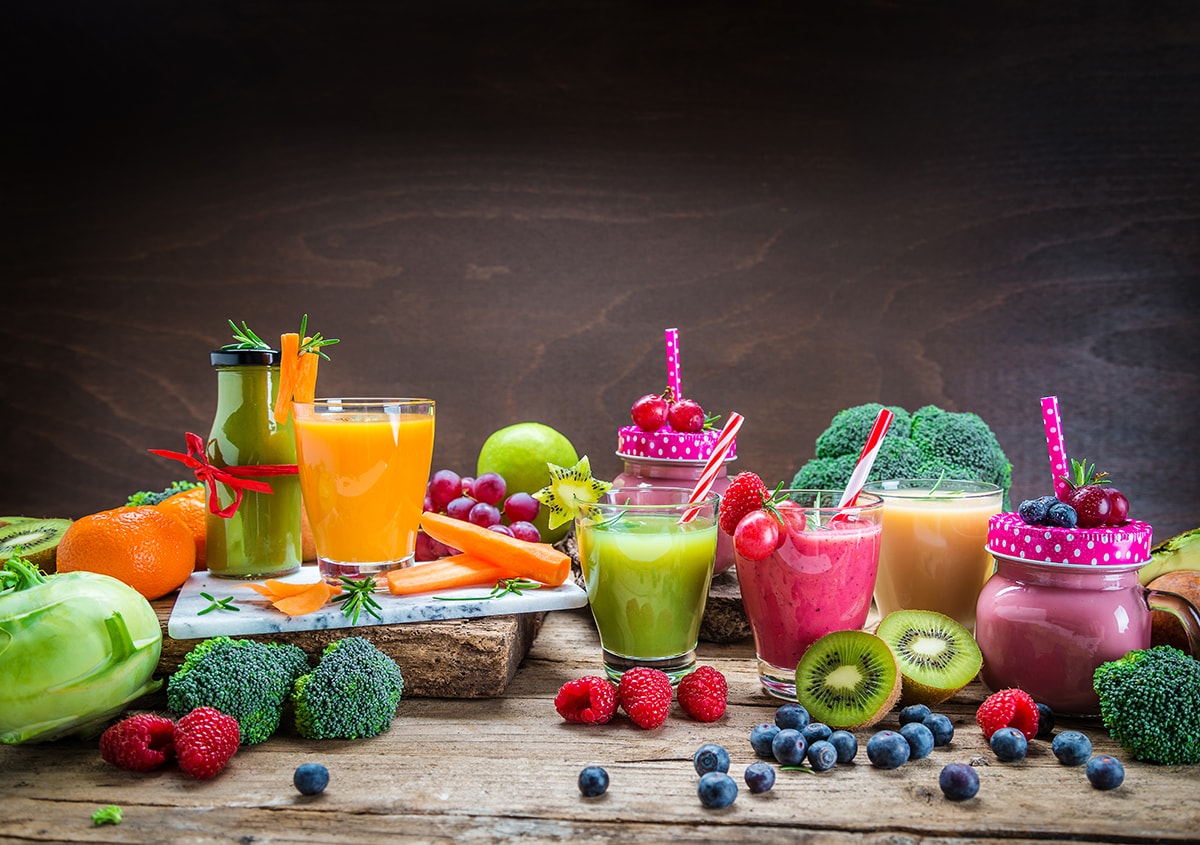
- Easy way to obtain nutrients. Research has shown that many people do not obtain sufficient nutrients from their diet. However, because the fruits and vegetables are juiced, it is easy to consume them.
- Improved health. Because fruits and vegetables are packed with vitamins, minerals, antioxidants, and plant compounds, a juice fast could boost overall health. In their liquid form, the body works less to digest and absorb these essential nutrients.
- Increased energy. These juices are also rich in anti-inflammatory compounds that give the immune system a boost, helping you feel more energetic. Thus, juice fasting helps prevent chronic inflammation that can lead to negative consequences.
- Eliminate toxins. A juice cleanse is also called a detox because it flushes toxins from the body. By restricting solid food from the diet, a juice fast allows the body to clean out all impurities and keep the organs healthy.
- Better digestion. Drinking juices rich in fiber can also help improve digestion by making the gut work more efficiently.
Cons of Juice Fasting
- Kidney stones may form. Beets and dark, leafy greens are high in oxalate, which can cause kidney stones. Thus, drinking large quantities of any juice made from beets or dark, leafy greens will be high in oxalate and may increase the risk of kidney disease.
- Metabolism might slow down. A juice diet helps you lose weight in the short term through a severe calorie restriction. However, experts advise against this as it can slow your metabolism in the long term.
- Contains sugar. Fruits contain fructose, a naturally occurring sugar in fruits. Moreover, research has linked 100% fruit juice with childhood obesity. Because of this, consider making your juice diet mostly out of vegetables.
- Can be expensive. Juice cleansing can be expensive, especially if you choose a program that requires you to drink store-bought ones instead of making your own. A three-day cleanse can cost you anywhere between $99 and $225.
- Unpasteurized juice. Fresh juice is also known as unpasteurized juice because it is not heat-treated. Drinking unpasteurized juice may contain harmful bacteria that could make some people sick.
- Detox symptoms. Some detox symptoms are commonly seen in people who fast, including headaches, weakness, dehydration, and hunger pangs. Health experts advise against extreme physical activity during a fast because fainting is a risk.
Who Can Juice Fast?

Juice fasting is generally safe for healthy adults, but anyone who belongs to the following groups should avoid juice fasting:
- Children and adolescents
- Pregnant or breastfeeding women
- Older adults
- Athletes
- Diabetics
- People with kidney or liver disease
Sample Recipes
If your doctor has cleared you for a juice cleanse, your next step should be to decide what kind of juice you will drink. So, here are some sample recipes to help you out.
Immunity-Boosting Green Juice Recipe
A glass of green juice in the morning is enough to keep you full of energy all day long. When talking of vegetables like mint, spinach, lettuce, and celery, the benefits they provide to your immunity are endless. If you want to boost your immunity and improve your body’s metabolic functions, drinking this veggie juice is a good idea.
This green juice contains:
- Spinach
- Lettuce
- Cucumbers
- Celery
- Pineapple
- Apples
- Lemon
- Mint leaves
Drinking green juice regularly can improve your organs' health and make your body more efficient at eliminating toxins. This juice also contains various enzymes, which function as a foundation for great digestive health.
Radiant Detox Juice Recipe
This detox juice not only cleanses your body thoroughly but also boosts your energy levels. It is delicious and healthful, and it also helps prevent obesity. The freshly squeezed lemon juice it contains decreases your stress levels and makes you more mentally active and alert. Aside from that, it also restores your mental health, which lowers the risk of brain fog or mental fatigue.
This detox juice contains:
- Grapefruit
- Apples
- Lemons
- Radishes
- Carrots
- Ginger
- Cinnamon
Drinking this juice regularly will help keep your heart, body, and mind healthy. It reduces inflammation in the body, helps regulate blood pressure levels, and it prevents overeating by keeping you satiated for a long time.
Conclusion
So, juice fasting vs. water fasting, which is better? The answer really depends on yourself. In the meantime, you can consult your doctor. They can help you determine what your health goals are, and whether juice fasting or water fasting is better for you.
If you are looking for a diet that can help you manage your blood sugar levels, blood pressure, while costing nothing, then water fasting might be right for you. On the other hand, although juice fasting may be more expensive, it can improve overall health and energy levels while eliminating toxins from the body.
Again, remember to consult your doctor before making any changes to your diet and exercise routine. Doing so can help you minimize the risks of fasting.
Sources:
https://www.healthline.com/nutrition/intermittent-fasting-guide
https://www.verywellhealth.com/why-cant-i-eat-or-drink-before-surgery-3157000
https://www.webmd.com/diet/obesity/ss/slideshow-fasting-overview
https://www.healthline.com/nutrition/fasting-benefits
https://www.healthline.com/nutrition/10-health-benefits-of-intermittent-fasting
https://www.healthline.com/nutrition/how-to-fast
https://www.medicalnewstoday.com/articles/295914
https://www.healthline.com/nutrition/water-fasting
https://www.verywellfit.com/juice-cleanse-89120
https://www.medicalnewstoday.com/articles/323136
https://www.who.int/news-room/fact-sheets/detail/the-top-10-causes-of-death
https://tastylicious.com/what-happens-to-your-body-on-a-three-day-juice-cleanse/
https://tastylicious.com/juicing-vs-blending-which-is-better-for-your-health/

Leave a Reply